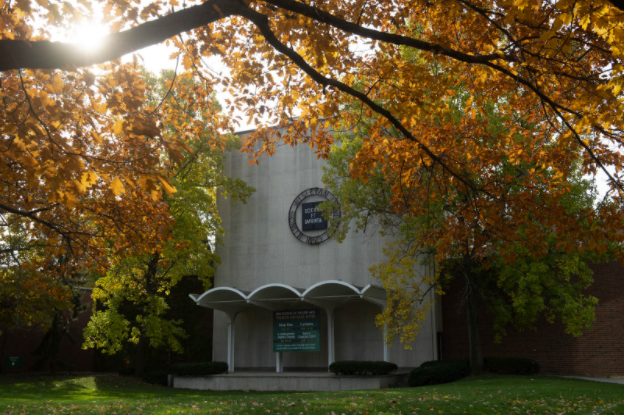
Illinois Wesleyan was officially sanctioned this week by The American Association of University Professors (AAUP) for “substantial noncompliance with standards of academic governance” on November 23.
The AAUP is a nonprofit membership association of faculty and other academic professionals that acts as a body meant to define and uphold fundamental professional values and standards for higher education.
A comprehensive investigation into Illinois Wesleyan’s academic conduct by the AAUP was made after decisions in 2020 to eliminate programs in anthropology, French, Italian, and religious studies. IWU then delivered terminal contracts to nine tenured faculty members and concerns were raised by faculty to the AAUP through a letter.
The investigation focused on seven institutions that, according to the AAUP, had major shortcomings in governance among the current global pandemic. Other institutions involved in the investigations at the time included Canisius College, Keuka College, Marian University, Medaille College, National University and Wittenberg University.
“When the AAUP carried out its investigation of eight colleges–of which IWU was one–we responded in writing to each one of the concerns they raised,” President Georgia Nugent said.
The Board of Trustees and President Nugent sent their official response to the organization on September 11, 2020. IWU’s University Council on University Programs and Policy (CUPP) penned an open letter on September 21 that detailed inaccuracies they had identified in the other letter. Later in the month, the AAUP announced an official investigation of the actions of the IWU’s administration.
The AAUP published a special report in May 2021 that focused on academic governance in higher-education during COVID-19. IWU was used as an example of an institution during that time that was in “disregard of the norms of academic governance.”
“In short, the trustees and administration of the university do not agree with AAUP’s characterizations of either the process or the result of the program review carried out in 2020,” Nugent said.
“In short, the trustees and administration of the university do not agree with AAUP’s characterizations of either the process or the result of the program review carried out in 2020,” Nugent said.
The sanction came, the AAUP said, because they had confirmed that the administration
“did not engage in adequate communication regarding the possibility that the program review might result in appointment terminations,” “failed to honor existing provisions in the faculty handbook designed to preserve the faculty’s “primary responsibility” for curricular decision-makin,” imposed their own program-review process and did not provide “compelling reasons” for rejecting the final curricular recommendations of the committee they had created.
According to the AAUP, institutions can be removed from the sanctioned list when considerable work has been done to respond to the problems that are being reported by faculty.
“In cooperation with the AAUP, [schools] have addressed the problems that led to the AAUP’s initial sanction or censure and are again taking seriously AAUP-recommended principles and standards on academic freedom, tenure, or governance,” AAUP said on their website.
President Nugent said that the Board of Trustees, administration and faculty leadership are working to meet the goal of no longer being sanctioned.
“While the AAUP has not suggested any specific remedial action to be taken by the university, they have indicated, in general, that it will be desirable for the administration and the faculty to develop more effective collaboration in the shared governance of the university,” Nugent said.
In response to the sanction, some students have expressed concern about how they would be impacted.
“Sanctioning by the AAUP has no material effect on the institution. It will have no effect on current or future students,” Nugent said.

